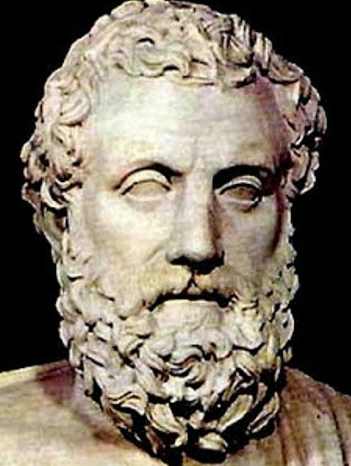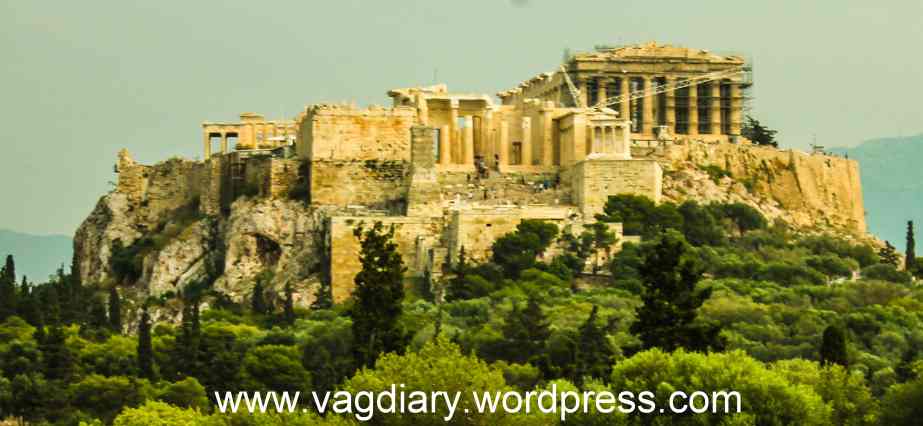Nick
Catalano is a TV writer/producer and Professor of Literature
and Music at Pace University. He reviews books and music for
several journals and is the author of Clifford
Brown: The Life and Art of the Legendary Jazz Trumpeter,
New York
Nights: Performing, Producing and Writing in Gotham
and A
New Yorker at Sea. His latest book, Tales
of a Hamptons Sailor, is now available. For Nick's
reviews, visit his website: www.nickcatalano.net
Huge
population segments on both sides of the Atlantic have grown
up in a bubble -- under the impression that their long running
democracies will simply continue uninterrupted far into the
future. The recent Trump phenomenon with its rightist swings
against democratic traditions such as immigration, voting credentials,
health care and social equality have alarmed elders who see
similarities to such issues in the fascism of Nazi Germany early
in their lifetime. Yet others who have no historical recollections
feel no real dangers.
Despite
the outrage of Trump and his right wing preaching, a more ominous
trend against democracy exists close by in our own hemisphere
and in Europe. Elections in Bulgaria, Hungary, Poland, Brazil,
Paraguay, Venezuela and other countries for extreme right-wing
candidates have sprung up suddenly. The trend has acquired the
term ‘populism’ or as Trump has iterated ‘Nationalism,’
but that is a euphemism for autocracy as anyone with a knowledge
of history can see. Brazil’s Bolsonaro and Hungary’s
Orban articulate rhetoric right out of Mein Kampf while other
populist rulers express similar sentiments.
Nevertheless,
the wave of democratic societies that followed the crumbling
of monarchies and oligarchies since the time of Columbus has
been inspirational. The slogans and traditions adopted by the
American and French revolutions have shaped many of the values
and governments of the modern world and resulted in widespread
belief that the planet has achieved an important punctuation
mark in human evolution. Many historians look back on the origins
of democracy in ancient Greece and proudly declare that its
legacy has successful counterparts in the modern world. Indeed
the goal of free elections and jury trials initiated by the
ancient Athenians has been the hallmark of countries everywhere.
The triumphant drumbeat of democracy still resonates loudly.
But
the parades and flag-waving of recent millennia have often failed
to note the moment to moment stumblings of democracy through
the ages. Its uneven development and evolution are nowhere as
triumphant as many think. Even the beacon of democracy in ancient
Greece has a history that bears a look back in the context of
the recent right-wing activity.
The
‘miracle’ of democracy in fifth-century Athens did
not spring up ex nihilo. A retrospection at least a
century and a half to the time of Homer is necessary to understand
the struggles toward societal freedom that the Greeks undertook.
Beginning
with Draco (620 B.C. -- some of whose ‘Draconian’
laws re homicide have become infamous) reforms were instituted
to try to establish fixed principles of justice that would override
the personal preferences of judges; the role of state government
had begun to evolve. Later, in the 6th century, Solon drew attention
to the problem of the wealthy class having advantage over the
poor in legislative decision-making (difficulty that persists
to the present day). He also instituted economic measures and
offered skilled craftsmen from abroad citizenship if they would
settle in Attica (the first move toward immigration). In addition,
he tweaked the justice system to allow male neighbors of victims
to bring forth indictments if they witnessed crimes. Accordingly,
once the sole concern of families, justice now became the business
of the community.
Unluckily,
because some of Solon’s laws allowed most citizens to
compete for political office, they probably played a role in
fostering civil strife. Also, the increased freedom under Solon
led to tribal groups whose competition for societal advantages
predictably caused further conflict. So a pattern developed:
the more autocracy, the less freedom; the more freedom the more
tribal squabbles.
THE
CONVOLUTIONS OF DEMOCRACY
As
the search for a more perfect government continued to convolute,
the ‘democratic’ momentum stalled, often reverting
back to autonomous rule. In came the time of Peisistratus and
his sons -- historians use the word ‘tyranny’ for
this regime -- but despite autocratic movement some of the earlier
marches to freedom managed to survive. This tyrant offered loans
to the needy so that the whole agricultural economy would benefit.
In fact, his autocratic policies ironically resulted in a furtherance
of democracy because when the last of his sons was expelled
in 510 B.C. all non-Peisistrads, rich and poor, found themselves
in surprisingly similar circumstances. That situation set the
stage for a return to the earlier egalitarianism but predictably,
also a return to factional strife.
 Now
into power came Cleisthenes. He was strongly dedicated to reform
and a furtherance of freedom for all. In short order he revised
the older and sometimes ignored Athenian constitution that had
had a topsy-turvy history under the aforementioned regimes,
organized a boule (somewhat presaging the senates of
future governments) and focused on the enhancement of the Assembly
as the principal instrument of legislative power.
Now
into power came Cleisthenes. He was strongly dedicated to reform
and a furtherance of freedom for all. In short order he revised
the older and sometimes ignored Athenian constitution that had
had a topsy-turvy history under the aforementioned regimes,
organized a boule (somewhat presaging the senates of
future governments) and focused on the enhancement of the Assembly
as the principal instrument of legislative power.
So
by 505 B.C. the system of ‘pure’ democracy finally
arrived and all citizens rich and poor could attend Assembly
meetings on the Pnyx (a famous hill facing the Acropolis), speak
their minds and vote on the agenda. 
To
the present day we celebrate this epic time of the 5th century
in classical Greece. Most significantly, this onset of previously
unavailable political and societal freedom spurned the golden
age of culture and science which followed. For 2500 years we
have re-visited this age and held it sacrosanct in the annals
of human evolution. The achievements of Plato, Socrates, Sophocles,
Aristotle and so many others are unmatched. And the arrival
of real democracy, after as we have seen, a millennium of governmental
experimentation, obviously played an enormous role in the cultural
activity.
Since
those heady years in ancient Greece no political system has
been held in higher esteem. And, in the modern era, following
the ignominious dictatorships we spoke of before, overwhelming
numbers of the world’s nations have rushed headlong to
adopt democratic systems.
However,
if we return for a moment to classical Athens and take a closer
look, the picture darkens quickly.
After
only a few decades in the fifth century of intoxicating universal
participatory democracy, fissures and cracks developed. Battles
with neighbouring city-states (particularly Sparta) which had
often occurred before, began to accelerate and the 25 year Peloponnesian
War began in 431 B.C. Plague broke out (over 50,000 Athenians
died) and everyone suffered; the smooth running trade economy
all over the Mediterranean eroded suddenly; wealthy citizens
began to mistrust the masses. These difficulties led to increasing
squabbles in the Assembly and new power struggles. The miraculous
threads of equality began to unwind.
After
Athens suffered a huge military defeat in Sicily, democracy
suffered its first of many convolutions in 413 B.C. when Athenians
placed decision-making in the hands of ten Oligarchs. In 411
the Assembly, symbol of the purest democracy the world was ever
to see, voted itself out of existence.
Reactionary
oligarchic experiments followed: first a council of 400, then
an evolution into a council of 5000. Finally, the war, the deteriorating
economy, and old factionalism virtually wrecked the democracy
and in 404 a government of 30 tyrants assumed power.
The
proud voice of Democracy became hoarse and then silenced by
the events described. Such events – war, economic hardship,
tribal factionalism – had struck down widespread democratic
freedom in Athens and would continue to stifle egalitarian government
efforts far into the future.
As
we said initially, those forces are certainly at work today
and it remains to be seen if western democracy can continue
to thrive or will suffer some catastrophic disintegration into
autocratic or even tyrannical rule.